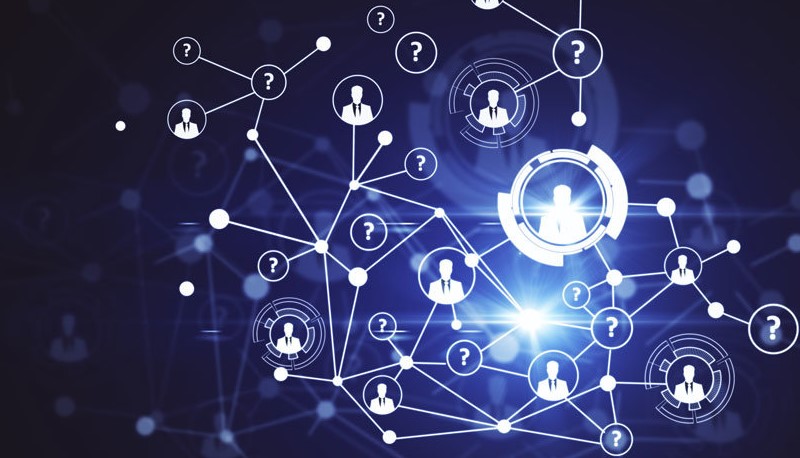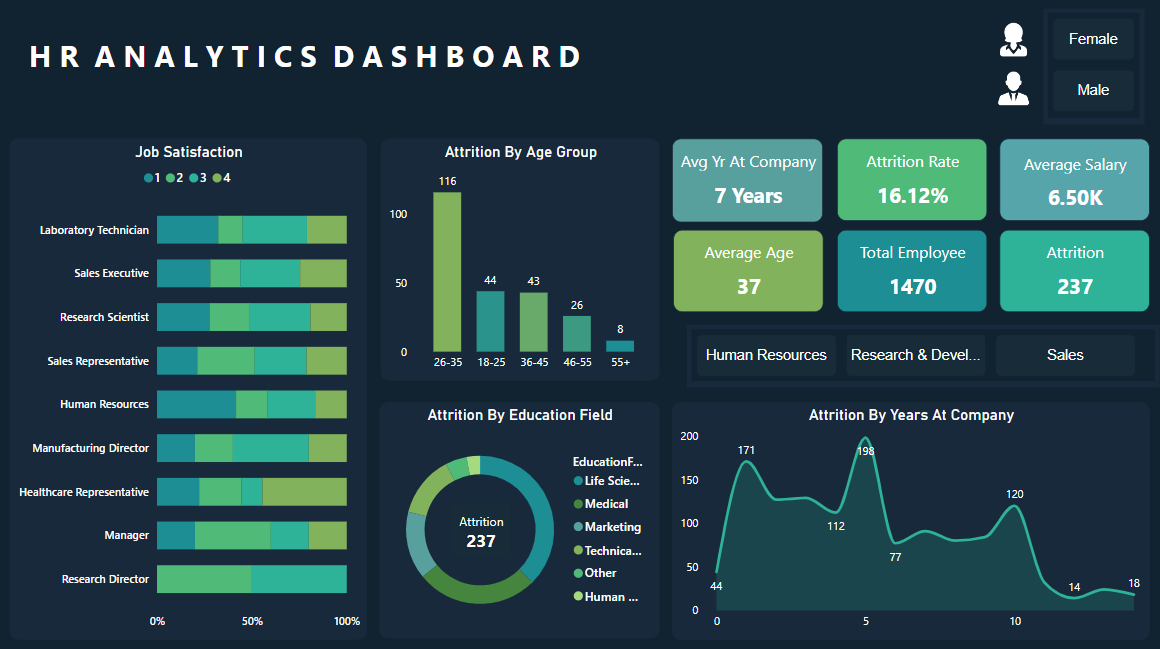HR Analytics Certification: 5 Useful Benefits for Your Career
Table of Contents

The modern human resource or HR department is deeply dependent on two advanced technologies: HR analytics and big data. Between these two, HR analytics plays a key role in regulating and comprehending HR data. Then, based on these data, organizations make informed decisions.
HR analysts are professionals who directly manage and work with HR analytics platforms. However, they require specific skill sets to handle those domains efficiently. These skills reshape their proficiency, productivity, and efficiency as HR analysts, and they can obtain them through HR analytics certification.
So, this article will highlight the benefits of taking HR analytics courses and fast-tracking your career.

*tmi.org
What is HR Analytics?
HR analytics refer to the collection, analysis, and reporting of HR data about an organization’s workforce. This process helps companies understand and make decisions based on the data about how to improve the organization’s overall performance.
The HR department ensures that employees remain productive at work. Thus, the HR department keeps all records about its employees to provide better insights for improving hiring decisions.
Benefits of HR Analytics Certification
By earning an HR analytics certification, HR professionals streamline their departmental workflows more efficiently. So, here are the major benefits of HR analytics certifications –
Improving Hiring Decisions
HR analytics assists professionals in making better decisions from the old data during the hiring process. Also, HR analytics tools help to identify the best candidate easily. For instance, if an HR professional hires 6 candidates and 3 among them belong to the same university, they might not appear beyond a particular level of the hiring process. That means the HR can limit how many candidates from a particular university would be hired for the organization.
A HR analytics certification makes these types of data-driven hiring decisions easier for professionals. The certifications guide them in utilizing HR analytics tools to find the right candidates and avoid mistakes during the process.
Optimizing Hiring Process
Hiring managers need to understand which types of people, experience, background, and talent are required for different positions. To achieve that, they need to analyze a large data set and break it into understandable patterns.
HR analytics certification provides in-depth knowledge regarding this scenario. The certification course helps HR managers understand how to break available data into required patterns quickly and efficiently, making the overall hiring process easier and time-saving.
Measuring Skill Gaps among Employees
HR analytics tools and strategies guide HR professionals in measuring and evaluating employee performance on a granular level. Moreover, an HR analytics certification strongly emphasizes this aspect.
These certification courses train individuals to utilize valuable performance metrics and analyze them to detect employee skill gaps and ensure skill development through training.
Enhancing Candidate Experience
HR analytics courses help companies understand what type of talents they should look to hire. As their understanding and decisions are backed by credible data, they can reduce time wastage by interacting only with relevant candidates and detecting the right candidate on time. This leads to a shorter hiring process that provides a better experience for the candidates.
Additionally, it reflects a positive brand image for the hiring company and gives them an edge.
Reducing Attrition Rate
HR analytics support identifying and analyzing the causes behind employee attrition. It’s a rate that measures an employee’s departure from an organization, which can be voluntary or involuntary. Moreover, an HR analytics certification helps professionals find out the reasons behind employee attrition more methodically. These reasons include overworking, low compensation, lack of skills development scope, unsuitable work environment, management issues, etc.
By understanding the reasons, they can mitigate the effects of employee turnover and interact with the employees better. They can use team assessments, surveys, and several interviews to help the employees understand the actual reasons for leaving the company.
Career in HR Analytics: The Pathway
Now, here is a quick guidance on how to build a career in HR analytics –
- Acquire a relevant degree: A bachelor’s or master’s degree in HR can provide a strong foundation for an HR analytics career. Additionally, individuals with degrees in related fields like business analytics, statistics, data science, etc., can pursue this career option. Furthermore, having an HR analytics certification can bring an added advantage.
- Obtaining practical experience: Obtaining hands-on experience through internships, entry-level positions, and volunteer work will be effective for embarking on an HR analytics career. This experience will help you develop the right skills, understand the sector better, and establish professional contacts.
- Develop technical skills: Strong technical skills are mandatory to build an impactful career in HR analytics. The technical skills include data visualization tools, programming languages such as Python and R, query languages like SQL, and statistical tools. They can gain these skills through online learning platforms, coursework, and hands-on experience.
- Building professional relationships: Building and networking with professionals can provide valuable insights about the industry, job opportunities, skill development, and career paths. Additionally, attending webinars, industry conferences, and seminars helps to build meaningful professional connections. Social platforms such as LinkedIn also help to find professionals and build a strong network.
- Stay up-to-date with industry trends: Moreover, aspirants must stay updated with the latest industry trends, technologies, tools, and best practices to get the right career opportunity in the HR analytics domain. So, reading about the latest industry news and articles, following the social media pages of various organizations, participating in forums, and attending webinars becomes fruitful.

*mavenanalytics
The Core HR Data Analysis Skills
Here are the major skill requirements to build a successful career in the HR analytics field –
- Data analysis: The first and foremost skill requirement for an HR analytics role is data analysis. This includes efficient handling of various statistical tools to analyze trends and workforce data. These tools help in decision-making in recruitment and employee development.
- Statistical methods: Proficiency in statistical methods guides HR professionals to gain insights accurately and predict organizational needs and employee behavior. The skill also helps to verify and validate the feasibility of HR policies and initiatives.
- HR metrics: HR analytics use specific metrics to understand the success rate of HR practices. The metrics include cost per hire, time to hire, employee satisfaction, turnover, revenue per employee, etc. Understanding these metrics will help make impactful strategic decisions and report to management.
- Reporting skills: HR analysts regularly craft detail-oriented reports. They present complex and raw data in understandable formats so that stakeholders can make data-driven decisions. Reporting requires both textual and visual communication skills.
- Survey design: Implementing and designing surveys is an essential skill for explicitly collecting data from employees. This way, HR professionals gain valuable insights about employee satisfaction, engagement, and other complex topics related to HR.
- Communication: Effective communication is the key to interacting with employees during the hiring process, conveying valuable insights, and convincing stakeholders to offer better opportunities for the organization.
- Problem-solving: The HR analysts’ problem-solving skills help them effectively solve complex issues and data discrepancies. Their robust problem-solving skills promote their analysis, identification, and resolution powers.
Conclusion
The emergence of data analysis has changed the way businesses function these days. Today, every department of an organization is using data to make decisions to lower the chances of them being wrong. The same can be seen in the human resource department as well. The HR analytics platform enables individuals to harness the power of data and hire the best person for the job. So, completing an HR analytics certificate arms the aspirants with the required knowledge and makes decisions that will help them propel in their careers.
The Next Step: Executive Development Programme in HR Analytics
HR analytics is a diverse field that provides great career opportunities and lucrative compensation. So, individuals who dream of pursuing a career as an HR analyst should earn a certification through the Executive Development Programme in HR Analytics—XLRI Jamshedpur. It provides in-depth exposure to HR analytics, perspective analytics, predictive analytics, and descriptive analytics.
The program takes place in collaboration of XLRI Jamshedpur and Jaro Education. Being the exclusive partner of XLRI, Jaro Education provides career focused services like peer to peer learning experience, dedicated student support, alumni events, alumni network, and more. So, explore the program and talk to a career expert of Jaro Education today.
This HR Analytics Certification course offers –
- The certification of completion from XLRI
- Private project presentations
- Real-time projects that can fulfill the needs of the candidates’ own organizations
- 6 day on campus immersion
- 2 tutorial sessions (1 hour each) after every online session
Frequently Asked Questions
What are the eligibility criteria for executive HR Analytics Certification from XLRI?
Individuals require graduation or diplomas from recognized universities in any discipline. Also, HR professionals require 2 years of work experience in the HR field. For non-professionals, the requirement for experience is 5 years.
What are the benefits of HR Analytics Certification?
The benefits of this certification are improvement in hiring decisions, hiring process, employee development, and productivity.
What are the technical skills requirements for HR analytics?
HR analysts need proficiency in data analysis technologies like Excel, Python, and R and data visualization tools like Power BI or Tableau.
What are the types of HR analytics?
There are four types of HR analytics. These are predictive, diagnostic, prescriptive, and descriptive analytics.
What are the skill requirements for the HR professionals?
They must have skills like communication, HR management and expertise, administrative expertise, advising, mentoring, and more.


















